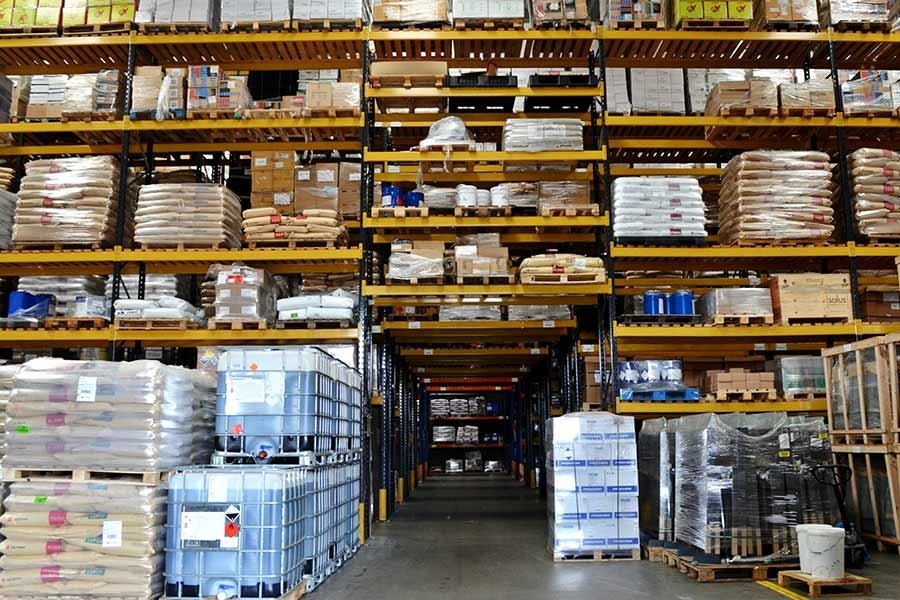
Published :
Updated :

Bonded warehousing facility offered by the government to exporting firms, particularly to garment exporters, has often been termed a happy hunting ground for errant players. Although there are apparently stringent rules governing the system, often hailed by the authorities as full-proof against misuse, the allegation that raw and packing materials imported free of duty and warehoused under supervision of the Customs wing of the National Board of Revenue (NBR) are recklessly pilfered is widespread.
Not long ago, the allegation seemed too sweeping, although several stray cases were unearthed in the past to show that it was not so. Lately, when the NBR chief raised the issue, it looked like the government has finally accepted the allegation confirming its failure to rein in the wicked practice. At a discussion meeting held at a local chamber last week, the NBR chief made no bones when he said that materials imported duty-free under fraudulent documents land up in the open market, at the expense of huge government revenue.
Bonded warehousing is a service that allows exporters to import and store their raw materials without payment of customs duties for a certain period of time until these are used in the manufacture of exported products. Bonded warehousing in Bangladesh was instrumental in bringing much of the vigour and dynamism that the country's export sector needed badly. Since the early 80's when garment export began to indicate signs of promise, bonded warehousing was one of the key mechanisms, along with back-to-back letter of credit, that succeeded in materialising much of what the business community was up for. However, there were talks of misuse of the system by unscrupulous exporters. But the mechanism -- backed by maintenance of passbooks by customs officials of imported goods stocked in the bonded warehouses and exported subsequently -- was meant to guard against any kind of misdeeds. The common perception is that it is a well protected system, and with its continuation over the decades it should have been protective enough to stop and detect any malpractice.
Since the NBR chief has alleged that goods imported without paying duties under bond system land up in the wholesale markets, one has reasons to ask the simplest of questions: why is it so? Isn't it the responsibility of the NBR to ensure that such practices did not occur? And in the event of an occurrence, the provision of penal measures in terms of hefty fine, should take care of the losses to government revenue. Isn't the system working now, or, is there a lacuna that allows devious practices of selling bonded goods in wholesale markets?
If imported goods -- mainly fabrics - make it to the wholesale markets without payment of duties, loss of government revenue is sure to be sky-rocketing. This is a scene no one will question. It is inevitable to be so. But the big question that cannot be averted is the manner in which it is practised. For, it is the customs officials who are the custodians of bonded warehouses. The NBR should look into the matter first, sweep its own backyard before complaining of the dishonest ways of the unscrupulous business people.
Availability of plentiful imported fabrics in the wholesale markets of the country is well known. But to question that these are all pilfered is to question the very foundation on which the bond mechanism is based. Legally, only a little quantity of fabrics can make its way to the open market, depending on saving of fabrics after completion of export order. A certain tolerance limit is allowed in the utilisation criterion for making various types of garments. But this in no way should constitute any loophole to allow massive quantities of duty-free imported fabrics flooding the market. Worst of all, it leaves a seriously injurious effect on local fabric production. Calculation of the loss of government revenue, if at all possible, would indeed be shocking.
It is notable that when the bond system was first introduced in the early eighties to facilitate the garment sector to procure raw materials - mainly fabrics - for export against back-to-back LC, the most critical aspect was to ensure that the bonded goods did not fly from the safe custody of the warehouses. It is this concern that prompted devising preventive mechanisms. But given the present state of affairs, one has reasons to ask if those have gone obsolete, or is it time to devise new mechanisms- smarter ones?
Since the issue has been raised by none other than the NBR chief, one hopes the matter received due attention from relevant quarters, and not got muted like many such wrongdoings.


 For all latest news, follow The Financial Express Google News channel.
For all latest news, follow The Financial Express Google News channel.